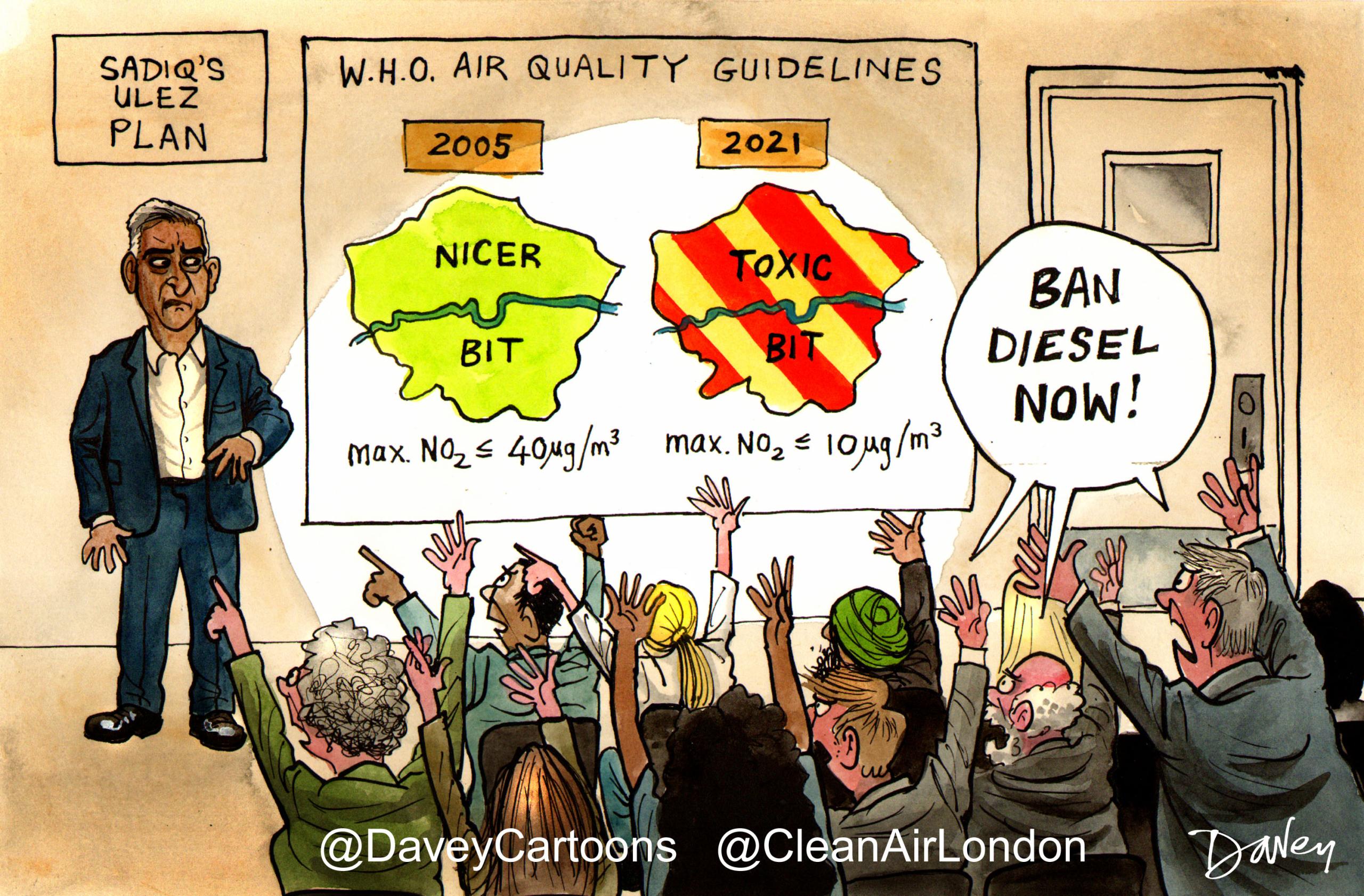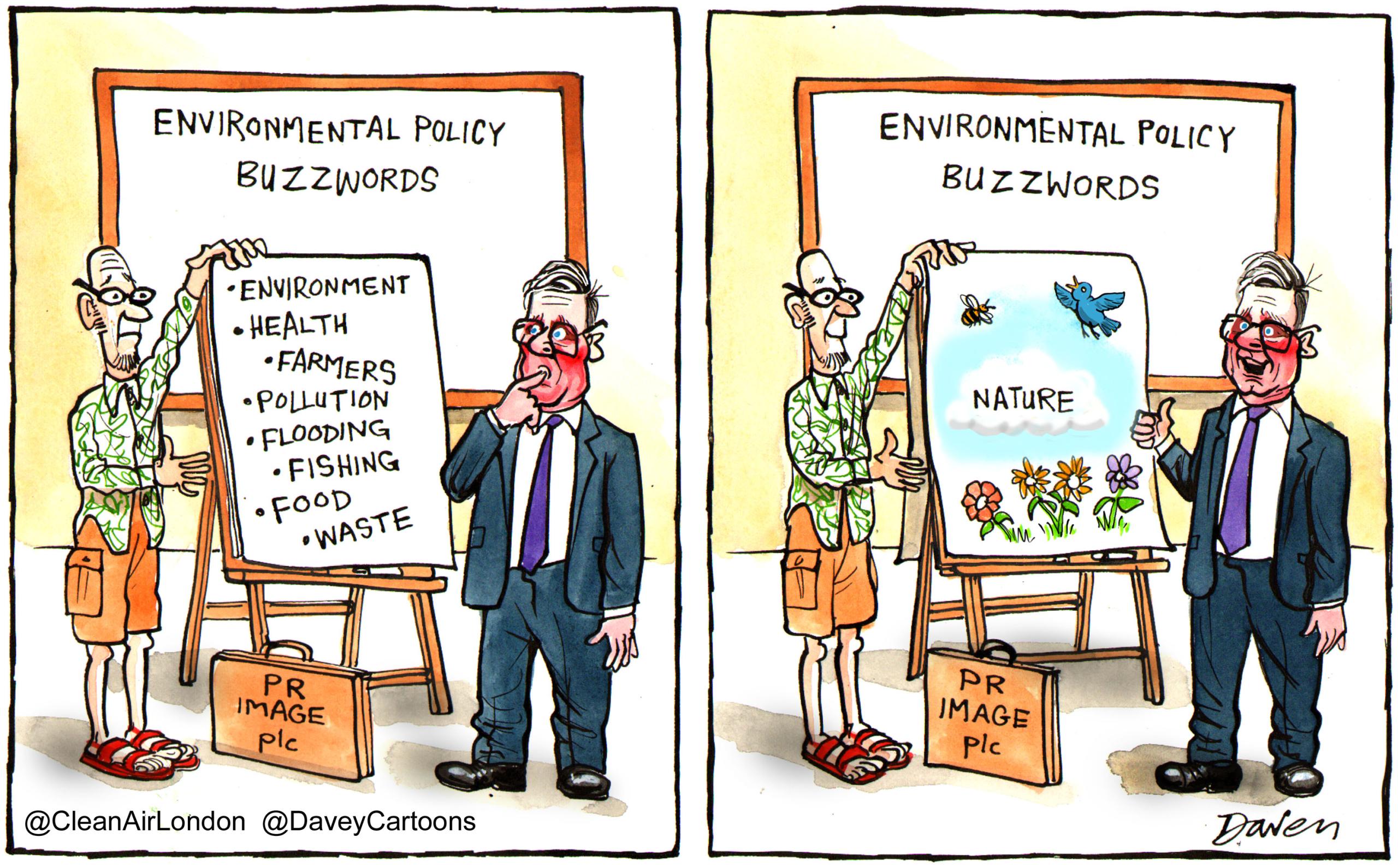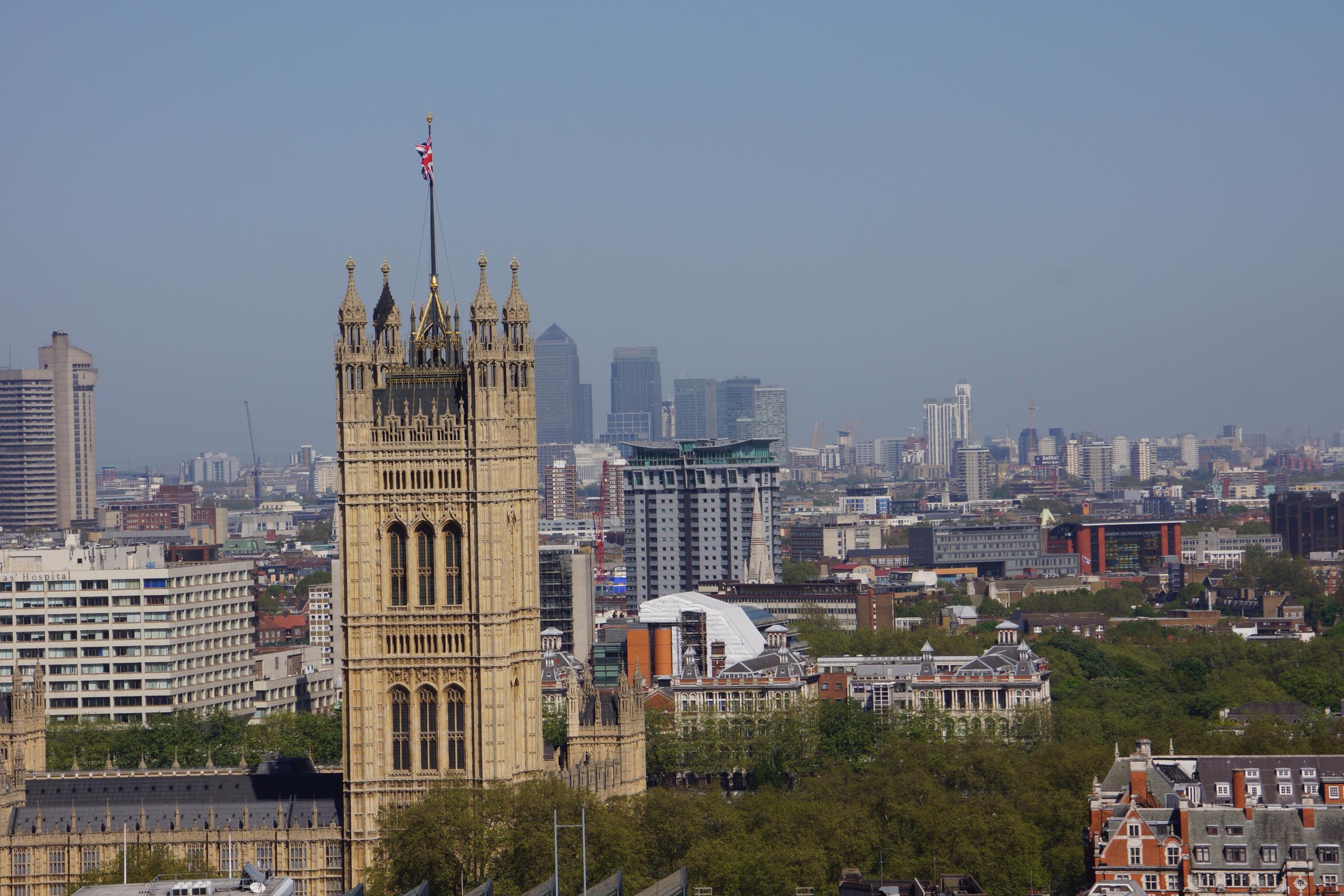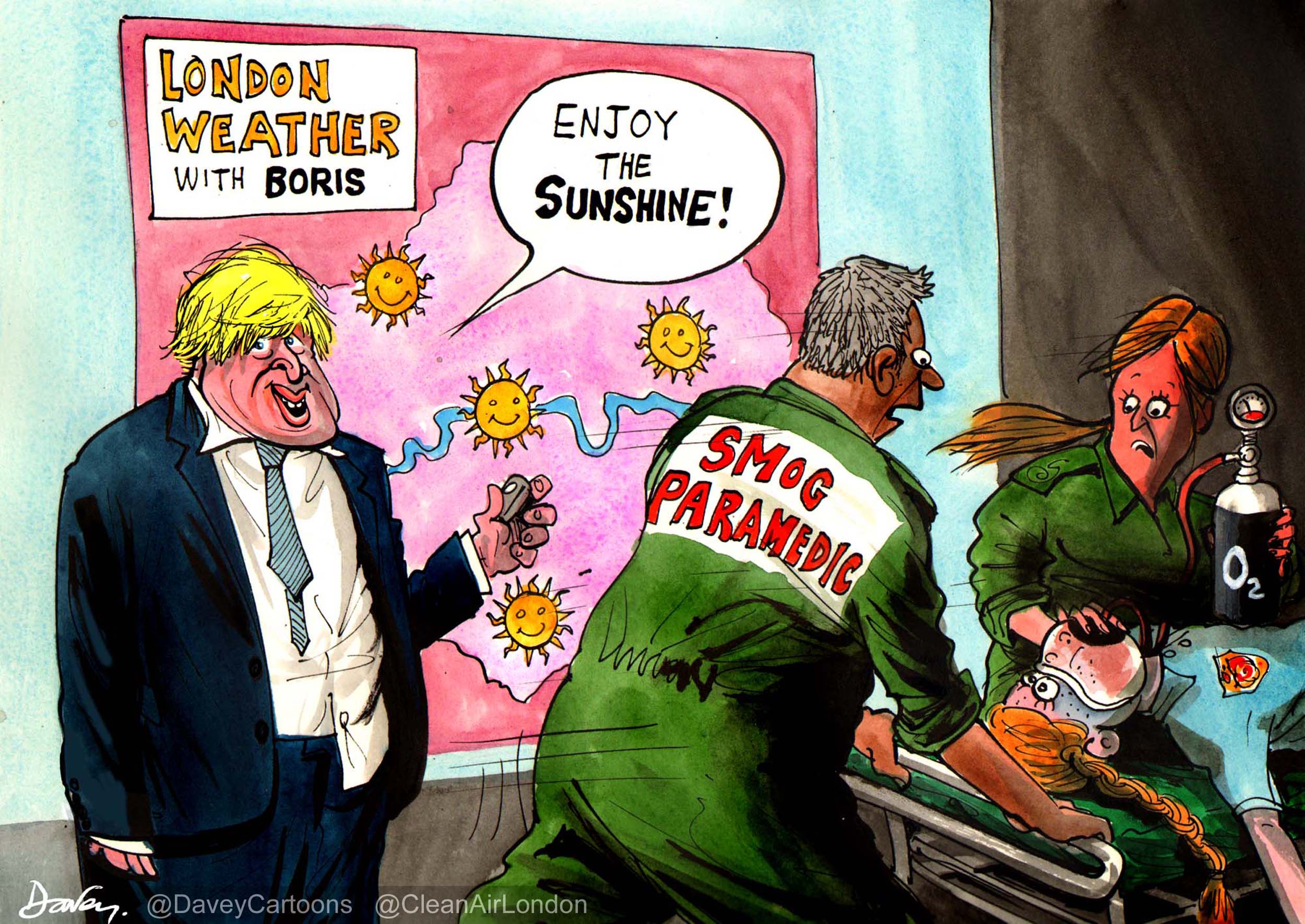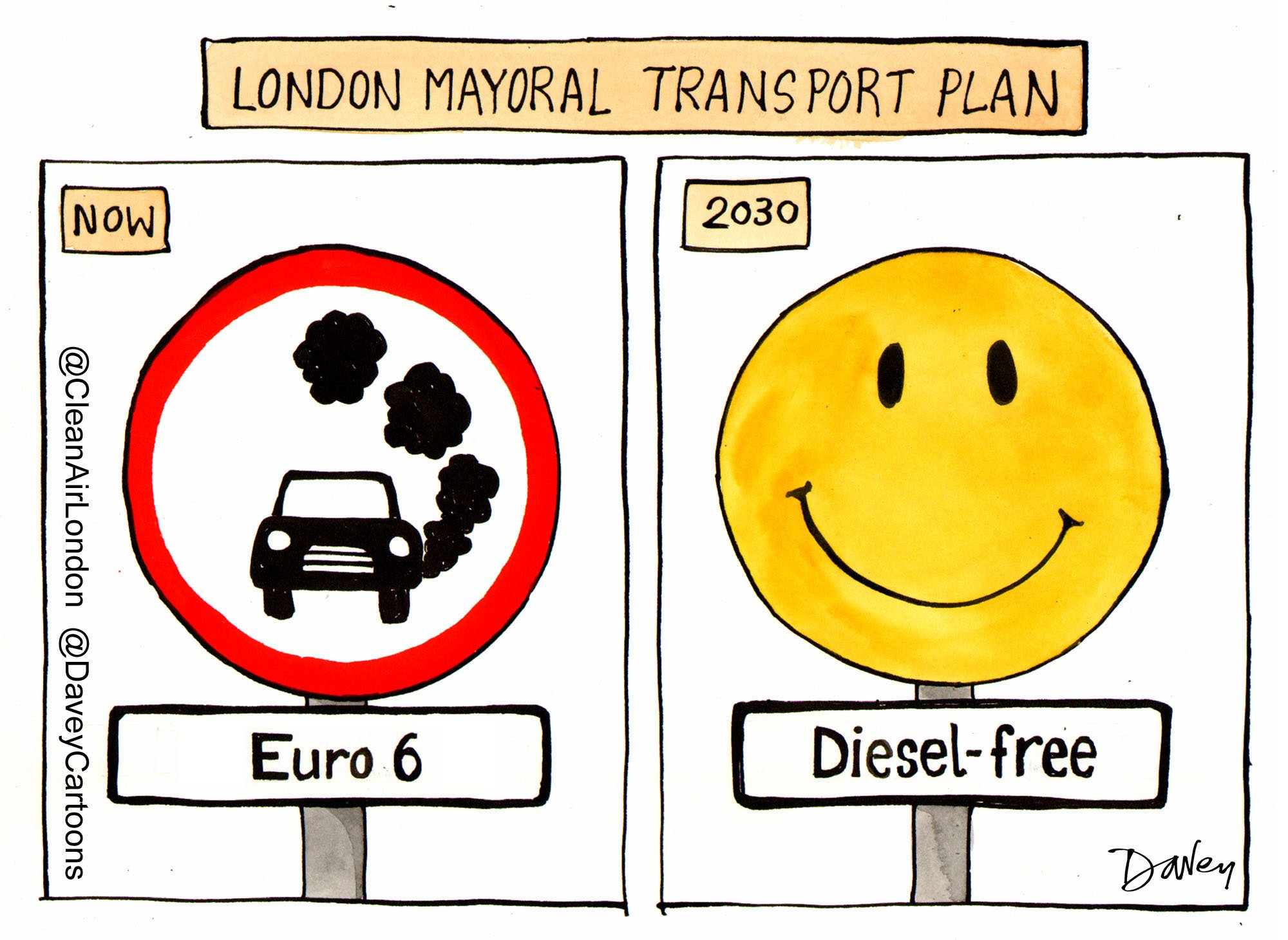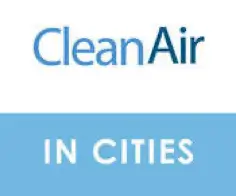Parliament’s Environmental Audit Committee (EAC) has published the Government’s response to its further inquiry into air quality
EAC expresses it’s ‘disappointment’ that Government disagrees with many of its recommendations. Government denies its approach is ‘business as usual’
Government admits it has no intention of complying with air quality laws for nitrogen dioxide (NO2) by the extended compliance date of January 2015 which it says is ‘inadequate’
Government blames everyone but itself for failing to comply with air quality laws and boasts proudly of its new powers under the Localism Act 2011 to pass fines to local authorities
‘Clean Air in London’ has resigned from Government’s key stakeholder group on air quality
Parliament’s Environmental Audit Committee (EAC) has published today the Government’s response to the Committee’s Ninth Report of Session 2010-12 titled ‘Air quality: A follow-up report’.
This can be seen together with recent correspondence between Joan Walley MP (Chair of the EAC) and The Rt. Hon. Caroline Spelman MP (Secretary of State for Environment Food and Rural Affairs):
http://www.parliament.uk/business/committees/committees-a-z/commons-select/environmental-audit- committee/news/announcement-of-publication12/
Quotes
Simon Birkett, Founder and Director of Clean Air in London, said:
“The Environmental Audit Committee (EAC) is right to ‘rubbish’ the Government’s response to its hard-hitting inquiry into the Government’s failure to address the biggest public health crisis for decades.
“In a response riddled with typographical errors, the Government blames everyone but itself for failing to address the biggest public health risk after smoking. Amongst others, it blames:
the underperformance of vehicle abatement technologies for nitrogen dioxide (NO2) (paragraph 21 on page 6);
- the deadline of January 2015 to comply with NO2 limit values, in legislation since 1999 to be complied with by 2010, which it says is ‘inadequate’ (paragraph 22 on page 6);
- the ‘increased dieselisation of the vehicle fleet’ (which it has encouraged) and ‘increased van and bus activity in urban areas’ for ‘more NO2 exceedences and declarations of air quality management areas at local level’ (paragraph 5 on page 1);
- local authorities saying ‘The powers in Part 2 of the Localism Act to pass on infraction fines are intended to encourage local authorities to meet their European obligations and act responsibly’ (paragraph 7 on page 2) and ‘Given this increased flexibility [under the Localism Act 2011], public authorities must, therefore, accept responsibility for the consequences of their actions or inaction’ (paragraph 35 on page 10). Then ‘As stated in our response to the previous EAC report on Air Quality, decisions on the introduction of low emission zones must be made at a local level by local authorities’ (paragraph 48 on page 13);
- low emission zones: ‘Concerns over economic impact or loss of business—over whether shoppers or freight would go to another nearby town or city where they are not penalised for having more polluting vehicles’ (paragraph 49 on page 13);
- industry: ‘An impact assessment carried out in 2011 suggested that whilst [low emission zones] may represent the most cost effective approach to reducing NOx emissions (noting the uncertainties in emission factors), the cost to industry were still significant’ (paragraph 51 on page 14); and
- the weather saying ‘The most likely health risk arising from air pollution during the Olympic Games is from an ozone event’… ‘Scope for local action in these circumstances is extremely limited and need long-term commitments to reduce emissions of precursor pollutants.’…
‘Measures are in place to ensure regular advice is provided through LOCOG to the IOC on air quality at Games venues and also to the public.’ Paragraph 19 on page 5.“It seems the list of excuses is endless. In its response, the Government puts most emphasis on its new powers under the Localism Act 2011 to pass fines to local authorities. Repeatedly, the Government’s response focuses on short-term costs and challenges rather than the financial burden to society of up to £20 billion per year of continued inaction.
“Astonishingly, the Government makes crystal clear it has no intention of complying with legally binding deadlines for nitrogen dioxide (paragraphs 22 and 23 on page 6) which have been in legislation since 1999 and required to be met by 2010.
“It is laughable for the Government to say it is too costly to comply with air quality laws. Defra’s own Air Quality Strategy in 2007 stated, for example ‘policies in the road transport sector and the electricity generating sector have been shown to be very cost beneficial with benefits estimated to have exceeded costs by up to a factor of 24’ Note. It’s too costly not to comply with air quality laws.
“Clean Air in London is very disappointed by the Government’s response today to the EAC’s latest inquiry into air quality. In particular, the long list of excuses and clear message that the Government has no intention of complying with air quality deadlines makes it impossible for CAL to continue as a member of the Government’s key stakeholder group on air quality.
“Clean Air in London has therefore resigned today from the Government’s stakeholder group on air quality.”
Note
Defra’s Air Quality Strategy in 2007 stated on page 23 of Volume 1:
http://www.defra.gov.uk/publications/files/pb12654-air-quality-strategy-vol1-070712.pdf
26. Defra and the devolved administrations published ‘An Evaluation of the Air Quality Strategy’13 in January 2005. It evaluated selected air quality policies in the road transport and electricity generation sectors to assess their effectiveness in achieving air quality improvements. The report looked at policies between 1990-2001. However, due to the fact that the benefits of these policies extend far beyond this period, the analysis was also extended over a projected period between 2002- 2010.
27. It is clear from the evaluation report that policies in the road transport sector and the electricity generating sector have had a major impact in reducing air pollutant emissions and were shown to be very cost beneficial, with benefits estimated to have exceeded costs by up to a factor of 24. Of particular importance was the fitting of catalytic converters to motor vehicles and the increased use of gas to generate electricity. These had a major impact on improving air quality and ensuring progress towards the UK’s air quality objectives and European air quality limit values. They have also resulted in extremely large benefits to society by reducing the health and environmental impacts of air pollution, with road transport policies achieving benefits worth £2.9 to £18.4 billion and policies in the electricity generating sector achieving benefits worth £10.8 to £50.6 billion between 1990 and 2001. (The variation in these figures is largely the result of the uncertainty surrounding health impacts. Recent advances in the quantification of health benefits suggest that even the high end of this range of estimated of benefits is likely to underestimate the true benefit). The majority of these benefits were as a result of improvements in human health.

